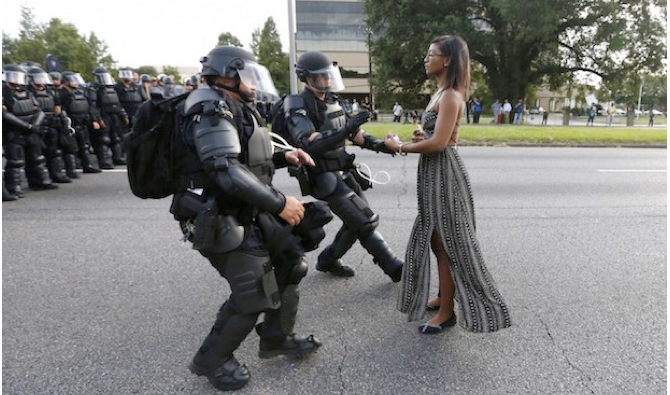CommentsGUEST WORDS--Under Lee Baca’s leadership people were racially profiled, women were molested, immigrants were deported, and there were many walls built to keep specific people away. Sound like a certain President-Elect? He also married someone who emigrated from Asia, had a self-proclaimed law-and-order reputation, gave celebrities special treatment, served with a second-in-command who was just as corrupt, and condoned a historically violent, racist organization without specifically admitting to personal acts of violence or racism. This organization was not the Ku Klux Klan, but the Los Angeles County Sheriff’s Department.
So how did Los Angeles topple the oppressive power of former Sheriff Lee Baca after electing him to hold it? And how were we able to simultaneously form a Civilian Oversight Commission to put power in the hands of the people? Leaders emerged.
On December 6, 2016, exactly 151 years to the day the 13th Amendment was ratified, former Sheriff Lee Baca is scheduled to face a federal judge and the prospect of 20 years in prison for obstruction of justice. Organizations like Dignity and Power Now are largely responsible for this, due to their uplifting the dialogue of formerly incarcerated people and building social and political pressure.
Five years ago, a year before I put a hashtag in front of Black Lives Matter and sparked a global movement, I began leading a movement in Los Angeles. My brother had suffered a concussion after being severely beaten by deputies in the county jail, so I developed a performance art piece that sparked a coalition that shaped an organization, called Dignity and Power Now (DPN.) We would stand for hours outside the county jails and talk to people, a majority of them Black and Brown. Their stories of abuse were not being reported on the news, so we held press conferences. Solutions were not on the politicians’ agendas, so we showed up until they were. People wanted to end sheriff violence and implement accountability, so we demanded civilian oversight of the sheriff’s department.
The first time the county supervisors voted on implementing a civilian oversight commission we showed up with 300 formerly incarcerated people who shared their stories of oppression and resilience. The supervisors voted 3-2 against it. We didn’t stop. We continued organizing, holding events, and meeting with supervisors and candidates. Four months later, on December 9, 2014, the Los Angeles County Board of Supervisors voted in favor of civilian oversight.
The commission will be functional by January, and although it’s a huge step in the right direction, it is not perfect. They still need the power to subpoena the sheriff’s department and other agencies involved in custody operations. That would require a change to the county charter and a public vote.
The fact that there is former law enforcement, including a former LA County sheriff’s lieutenant, appointed to the commission raises serious concerns about whether it will protect incarcerated Black and Brown people, which is what the community and I have urgently fought for. And while we succeeded in electing a new sheriff, last year use of force in the jails went up 40%. We just elected Janice Hahn and Kathryn Barger to the LA County Board of Supervisors, giving it its first female majority and democratic supermajority, but just before that the board approved a new women’s jail and a new mental health jail, ignoring the research that has proven that jails can never be effective sites of care.
There is more ground to cover that could have grave impacts for those criminalized and incarcerated under a law-and-order presidency. Every day the choices that Donald Trump makes stirs the country’s attention, but the leadership worth looking to isn’t that of high-ranking political figures -- it’s that of the people on the ground. If you look to Los Angeles you will find leaders creating law enforcement accountability and fighting for Black lives. If you look to Oakland, Minneapolis, Chicago, St. Louis, Baltimore, and Toronto you will find the same.
This year people can associate December 6 as the day Lee Baca will go to trial, or the anniversary of the 13th Amendment, or as another day closer to when we will be subjected to a Trump presidency. Or, collectively, as a movement, we can choose to see it as another day that we will show up in our communities and we will lead.
(Patrisse Cullors is a Los Angeles-based artist, organizer, and freedom fighter. She is also the co-founder of #BlackLivesMatter. This piece first appeared at HuffingtonPost.com. Prepped for CityWatch by Linda Abrams.
Explore
Our mission is to promote and facilitate civic engagement and neighborhood empowerment, and to hold area government and its politicians accountable.

 CityWatch Los Angeles
Politics. Perspective. Participation.
CityWatch Los Angeles
Politics. Perspective. Participation.
18
Fri, Apr















